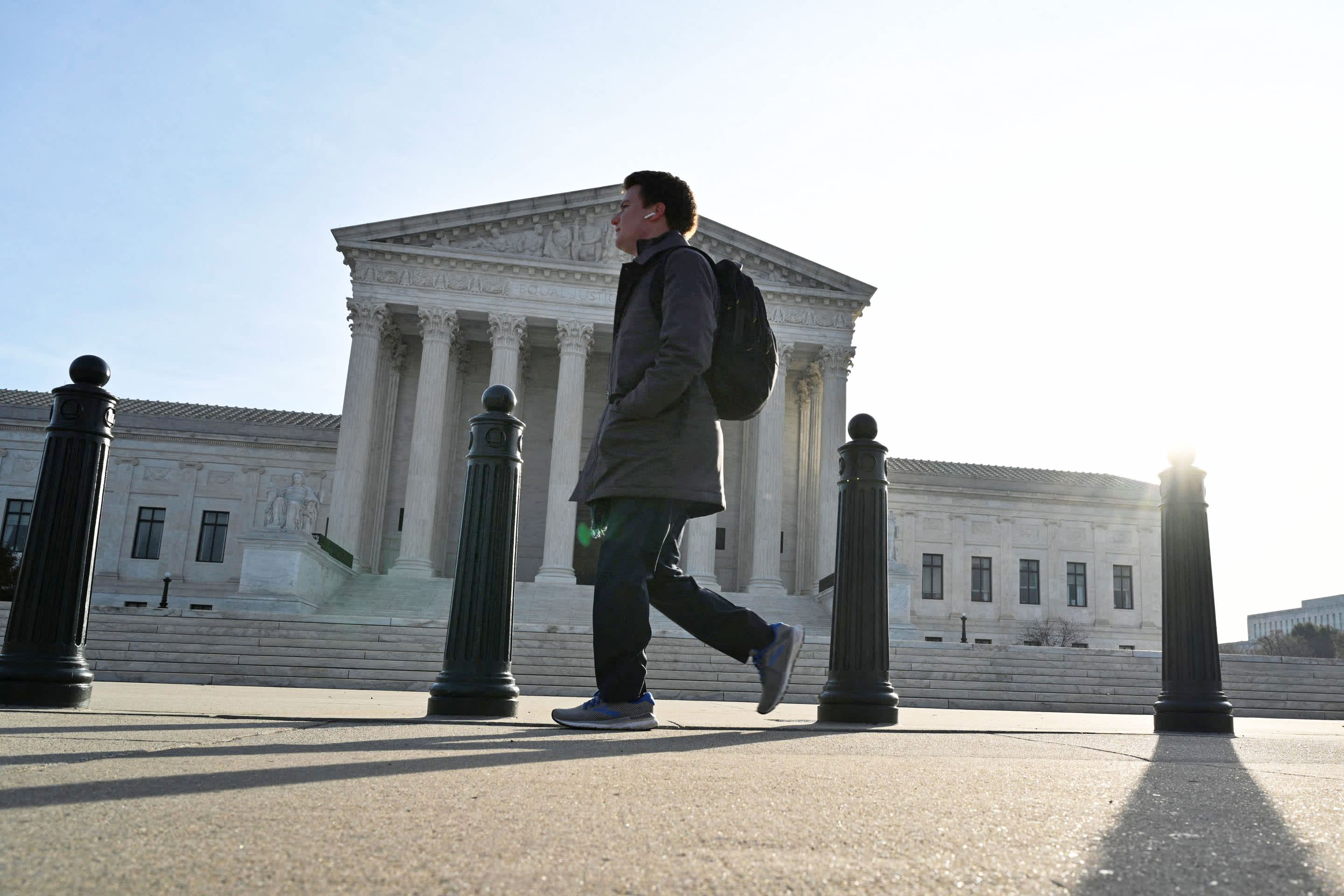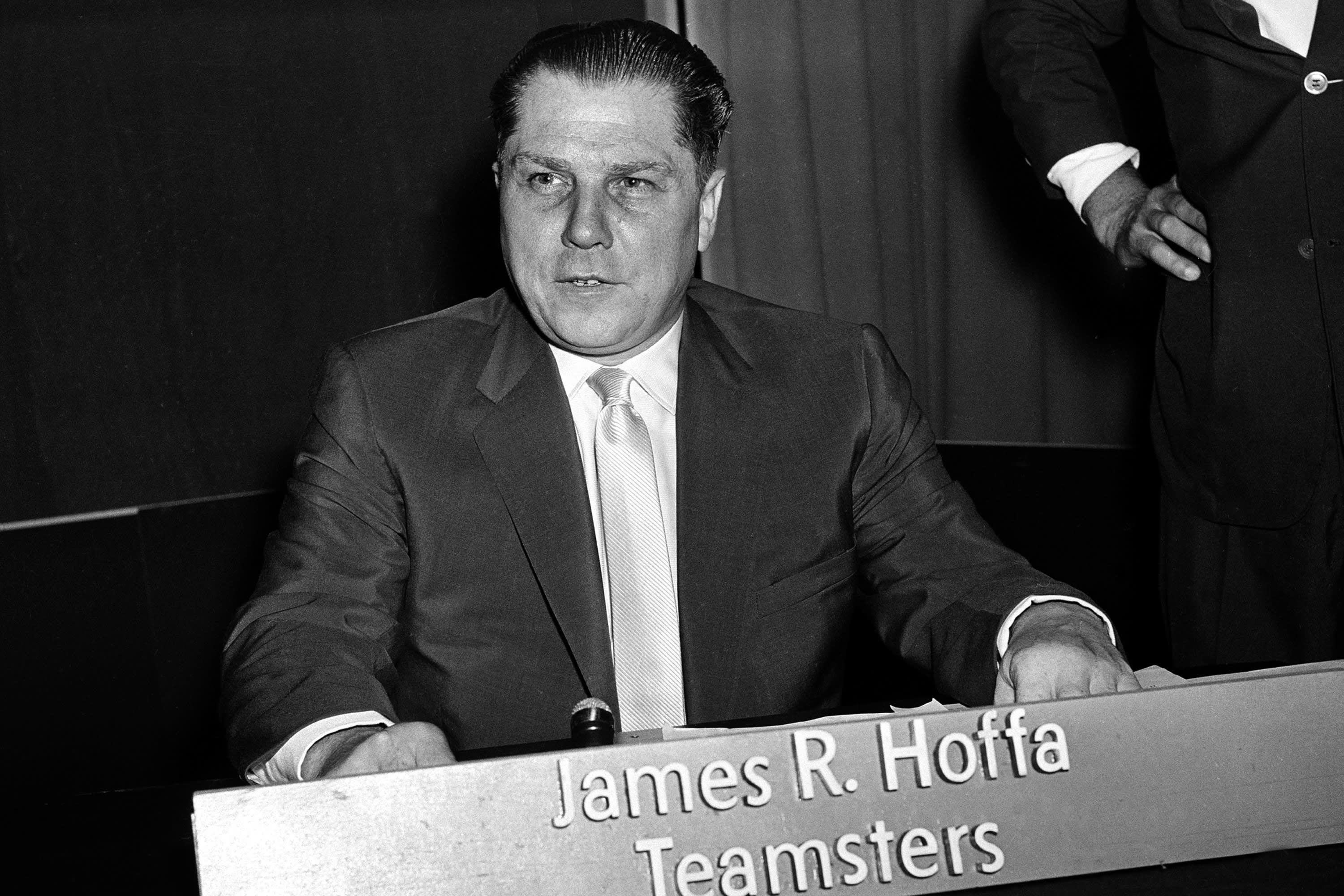Rep. Liz Cheney loses GOP primary to Trump-backed challenger, NBC projects
Cheney is Trump's highest-profile Republican critic in Congress and a leading figure in the House investigation of his role in the Jan. 6 Capitol riot.

U.S. Rep. Liz Cheney (R-WY) arrives to a primary night event on August 16, 2022 in Jackson, Wyoming. Rep. Cheney was defeated in her primary race by Wyoming Republican congressional candidate Harriet Hageman.
Alex Wong | Getty Images
Rep. Liz Cheney, former President Donald Trump's highest-profile Republican critic and a leading figure in the investigation of his role in the Jan. 6 Capitol riot, will lose her Wyoming primary race, NBC News projected.
The outcome of the primary for Wyoming's sole House seat was widely expected, as recent polls showed Cheney trailing her top rival, Harriet Hageman, by double-digit margins. Hageman was projected to win the GOP primary by NBC News. With 99% of the expected vote in, Hageman was leading Cheney with about 66.3% of the vote.
In a concession speech Tuesday evening, Cheney attributed her loss directly to her opposition to Trump.
"Two years ago, I won this primary with 73% of the vote. I could easily have done the same again," Cheney said.
"The path was clear. But it would have required that I go along with President Trump's lie about the 2020 election. It would have required that I enable his ongoing efforts to unravel our democratic system and attack the foundations of our republic," she said. "That is a path I could not and would not take."
Cheney, whose next steps have been a topic of much speculation among political watchers, also hinted that she will continue to combat Trump's falsehoods about the election.
"Tonight, Harriet Hageman received the most votes in this primary. She won. I called her to concede the race. This primary election is over. But now, the real work begins," Cheney said.
Wyoming Republican congressional candidate Harriet Hageman speaks during a primary election night party on August 16, 2022 in Cheyenne, Wyoming.
Michael Smith | Getty Images
Hageman, in contrast, thanked Trump in her victory speech. "His clear and unwavering support from the very beginning propelled us to victory tonight," she said.
Cheney's seat in Congress had appeared much more secure until fairly recently. The daughter of a former vice president, Liz Cheney had been the No. 3-ranking Republican in the House and had easily won her last election in 2020.
Things changed after the Jan. 6, 2021, insurrection, when a violent mob of Trump's supporters stormed the U.S. Capitol, forcing lawmakers to flee their chambers and delaying their efforts to confirm President Joe Biden's electoral victory. Members of the mob believed the then-president's false claims that his 2020 loss to President Joe Biden was the result of widespread fraud. Trump continues to spread election conspiracy theories and falsely assert the election was rigged.
Cheney voted to impeach Trump for inciting the riot, making her one of just 10 House Republicans to do so. The vote put a target on all their backs: Trump has worked to purge them and other Republicans he saw as insufficiently loyal. With Cheney's ouster, eight of the 10 pro-impeachment Republicans have since either lost reelection bids or announced their retirements from Congress.
Unlike most of them, Cheney has not shied away from her impeachment vote in order to try to convince Republicans in her overwhelmingly pro-Trump state to keep her in Congress.
Rather, Cheney has made it a central theme of her campaign, framing her vocal opposition as a moral imperative that transcends the goal of political self preservation.
"In our nation's 246-year history, there has never been an individual who has posed a greater threat to our republic than Donald Trump," said Cheney's father, former Vice President Dick Cheney, in one of multiple campaign ads focused on Trump.
Liz Cheney also became vice chair of the House select committee investigating the riot. She and Rep. Adam Kinzinger of Illinois — who voted to impeach Trump and is now retiring — are the only Republicans on the nine-seat probe.
House Minority Leader Kevin McCarthy, R-Calif., and other GOP leaders have condemned the investigation as a partisan fishing expedition, even though he had an opportunity to appoint five members to the panel. He withdrew them all after two were rejected by House Speaker Nancy Pelosi, D-Calif.
McCarthy had also backed efforts last year to strip Cheney of her rank as House Republican conference chair after she refused to tone down her criticism of Trump.

 JaneWalter
JaneWalter 































